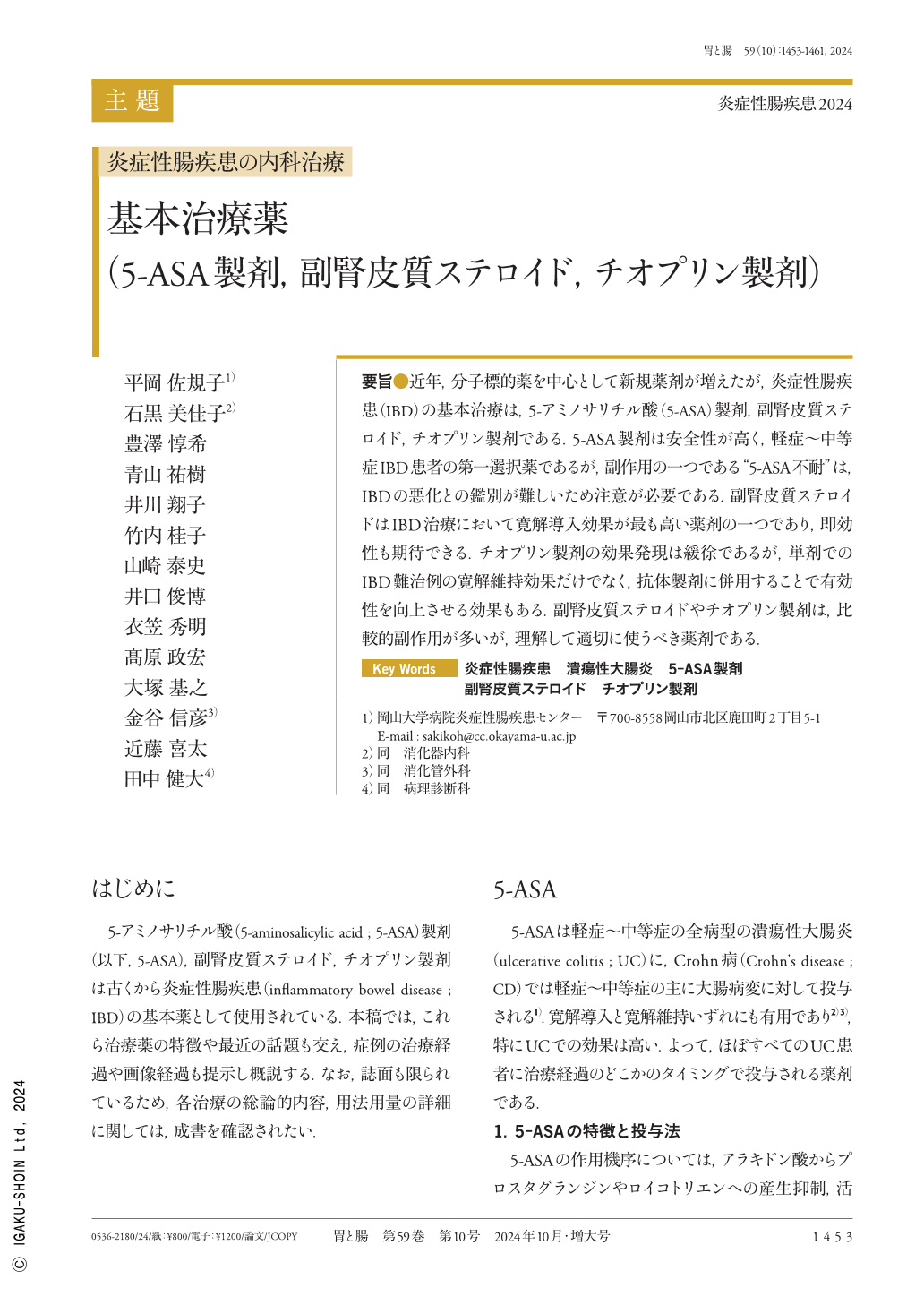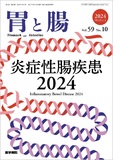Japanese
English
- 有料閲覧
- Abstract 文献概要
- 1ページ目 Look Inside
- 参考文献 Reference
要旨●近年,分子標的薬を中心として新規薬剤が増えたが,炎症性腸疾患(IBD)の基本治療は,5-アミノサリチル酸(5-ASA)製剤,副腎皮質ステロイド,チオプリン製剤である.5-ASA製剤は安全性が高く,軽症〜中等症IBD患者の第一選択薬であるが,副作用の一つである“5-ASA不耐”は,IBDの悪化との鑑別が難しいため注意が必要である.副腎皮質ステロイドはIBD治療において寛解導入効果が最も高い薬剤の一つであり,即効性も期待できる.チオプリン製剤の効果発現は緩徐であるが,単剤でのIBD難治例の寛解維持効果だけでなく,抗体製剤に併用することで有効性を向上させる効果もある.副腎皮質ステロイドやチオプリン製剤は,比較的副作用が多いが,理解して適切に使うべき薬剤である.
Although new drugs, mainly molecular-targeted agents, have been recently introduced, the treatment for inflammatory bowel disease(IBD)includes 5-aminosalicylic acid(5-ASA), corticosteroids, and thiopurines. 5-ASA has a good safety profile and may be the first-line treatment for IBD patients with mild-to-moderate activity, but “5-ASA intolerance,” which is difficult to distinguish from worsening IBD, should be noted. Corticosteroid is among the most effective agents for inducing remission in IBD patients with moderate or severe activity. Thiopurines have a slow onset of effect, but they have been used not only to maintain remission as monotherapy in patients with refractory IBD, but also to improve treatment efficacy when used in combination with biologics, especially anti-TNF agents. Corticosteroids and thiopurines have a relatively high incidence of side effects ; hence, they should be used appropriately.

Copyright © 2024, Igaku-Shoin Ltd. All rights reserved.


